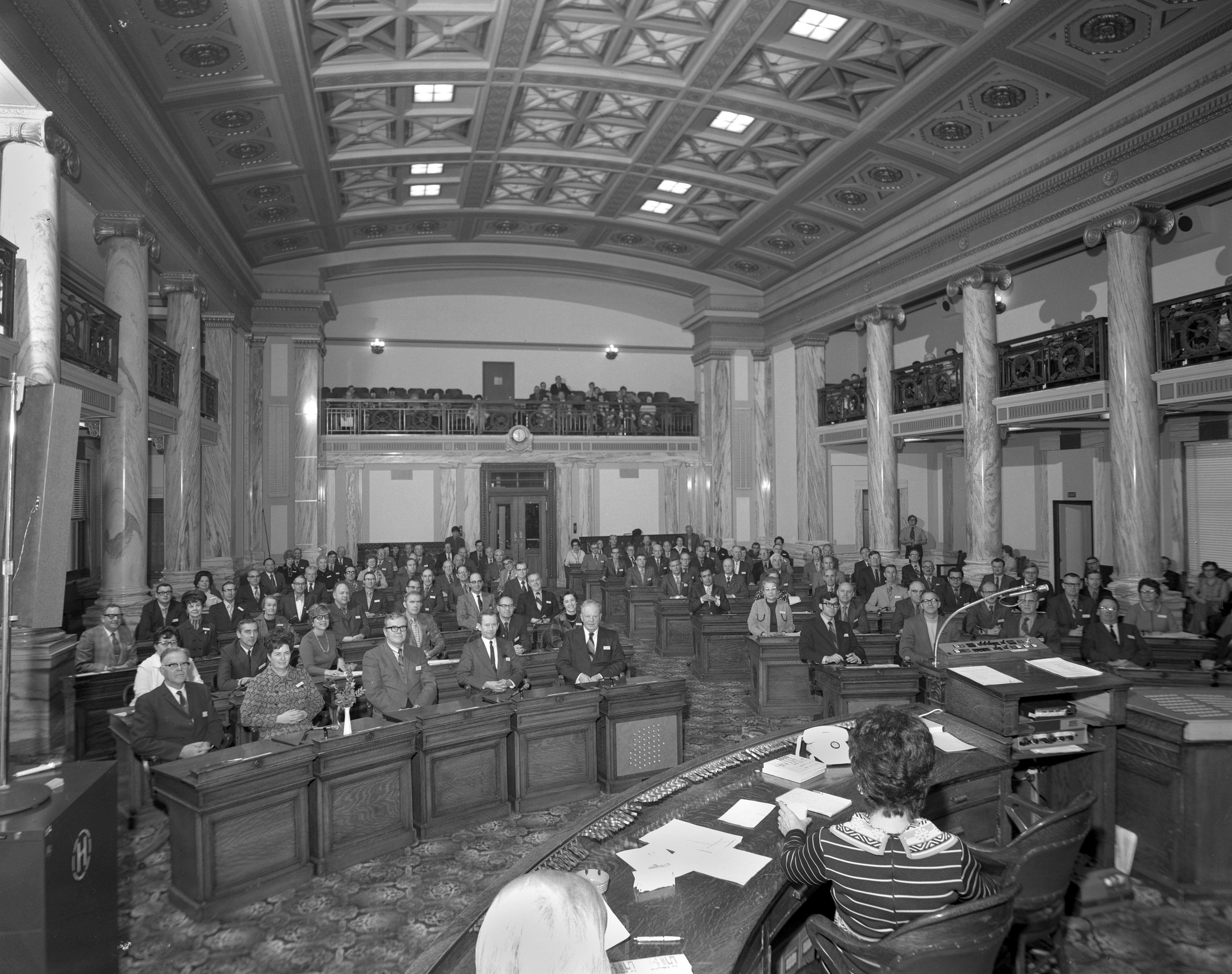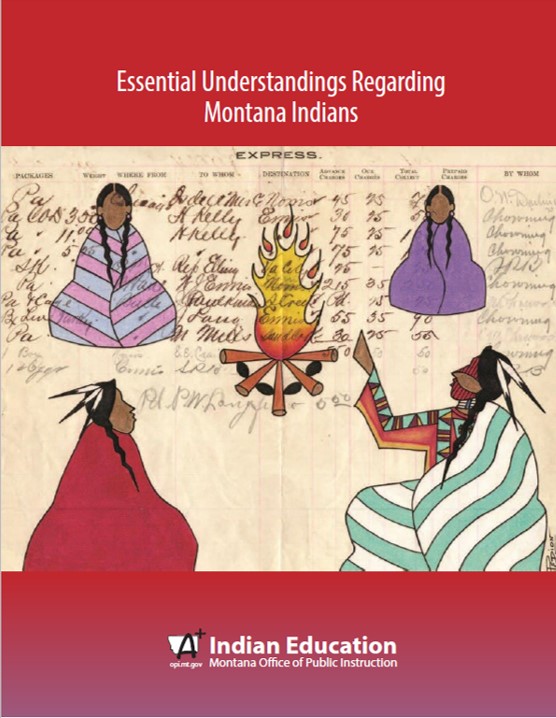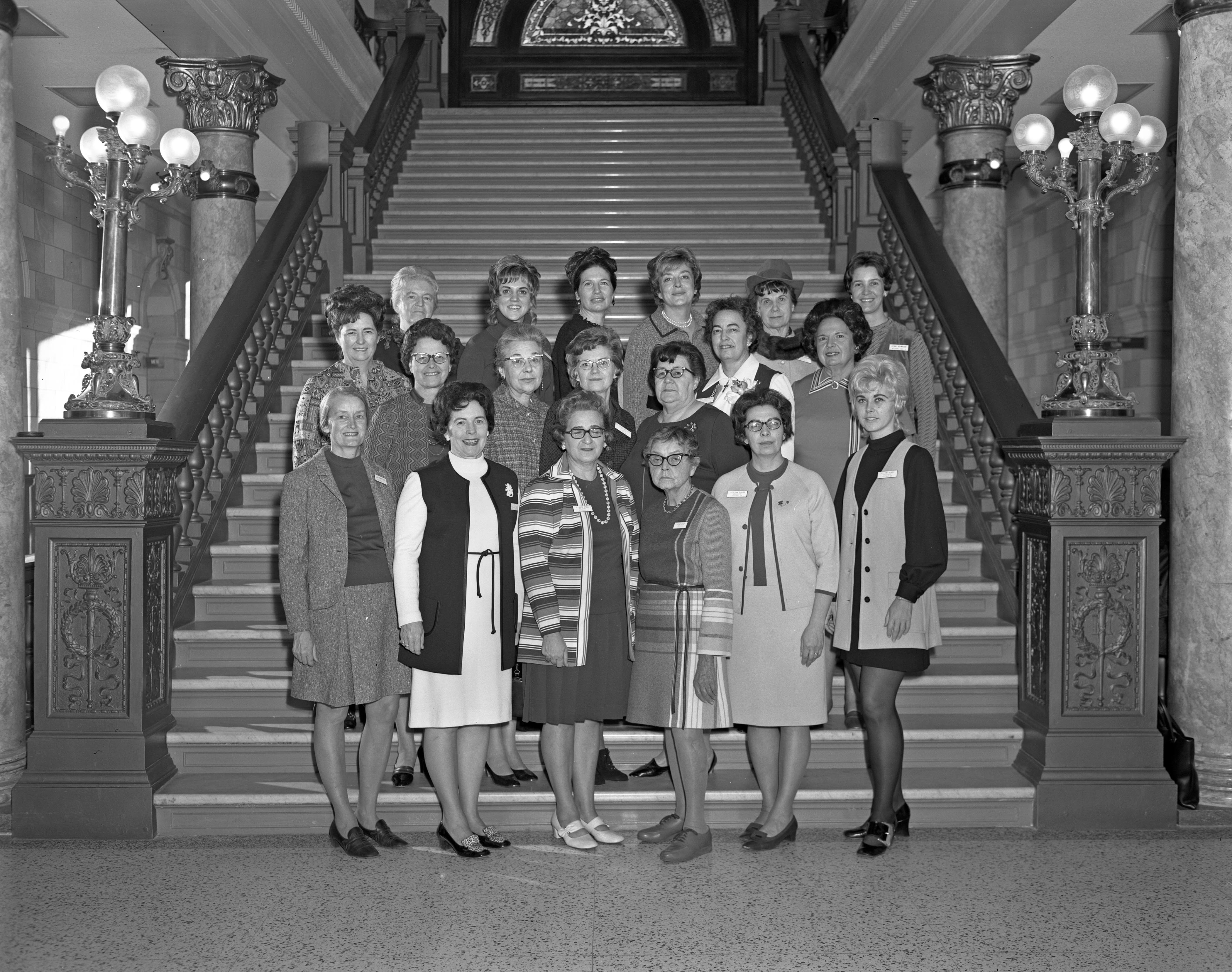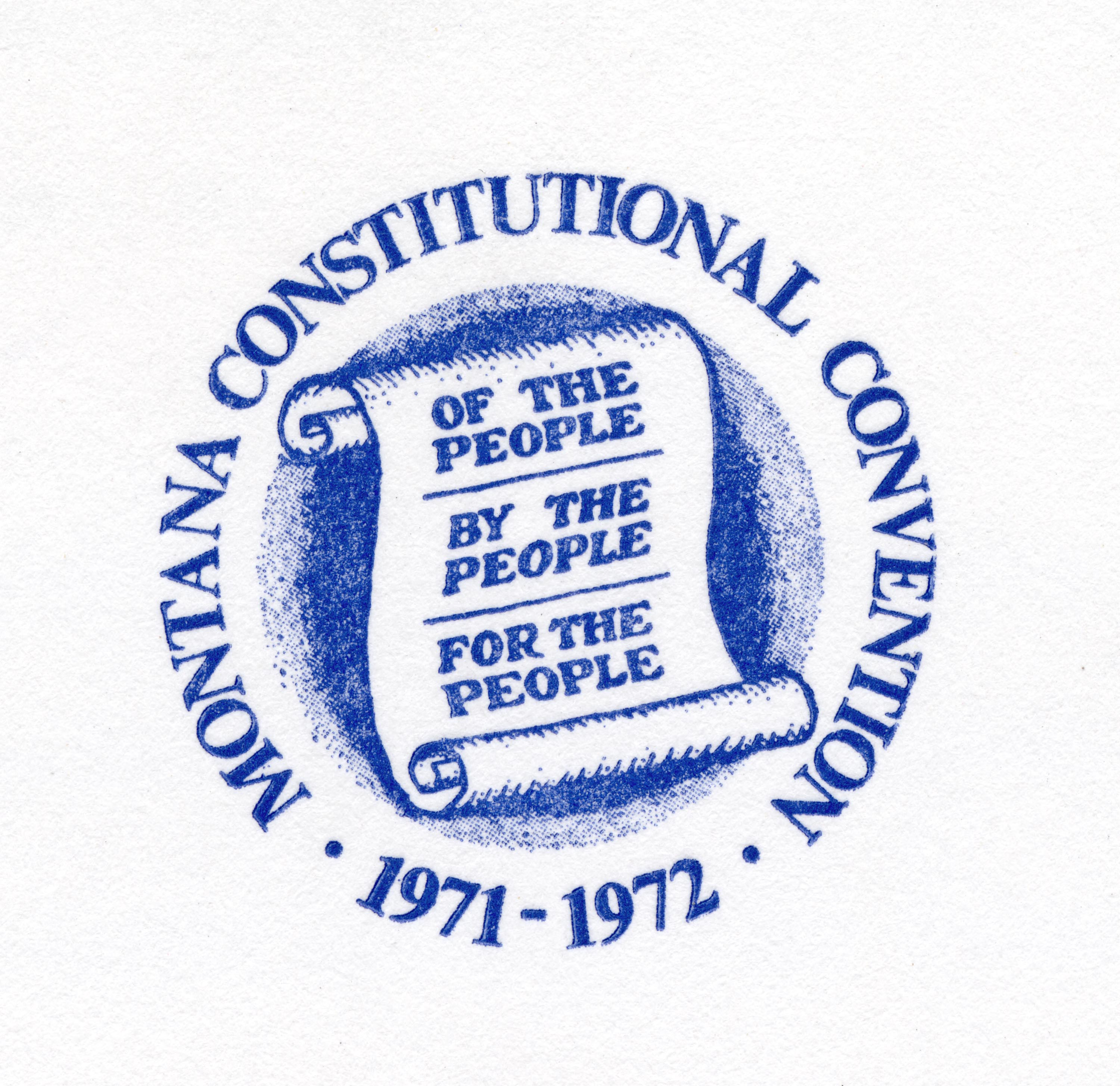The Montana Constitution at Fifty

Resources for Teaching about the Montana Constitution
New! The Montana 1972 Constitutional Convention (Designed for grades 11-12) This intensive dive into Montana’s constitutional convention asks students to analyze and compare the preambles of both the 1889 and 1972 Montana Constitutions before exploring how the 1972 constitution came to be, researching some of the major people and events of the 1972 Constitutional Convention, and presenting their findings in a digital “yearbook.” While the full lesson takes eight to eleven 50-minute class periods, parts can be used independently.
Chapter 21 of Montana: Stories of the Land: “A People's Constitution, 1972” and Worksheet and other Teacher Resources (Designed for grades 7-8)
Chapter Eight, "Montana's Quiet Revolution," (23 minutes) of Montana Mosaic: 20th Century People and Events, Video and User Guide with discussion questions. (Designed for grades 8-12)
Part 1 of Unit 5 of Montana: A History of Our Home, “The 1972 Constitution.” (Designed for grades 4-6)
Article X of the Montana State Constitution and Indian Education for All is a high school lesson plan created by the Indian Education Division.
Indian Education: A Continuing Legacy. Find short video clips of Earl Barlow, who lobbied for the inclusion of language recognizing “the distinct and unique cultural heritage of American Indians,” and Joyce Silverthorne, who helped implement Indian Education for All.
View the Montana History Portal's online exhibit.
Read Montana's 1972 Constitution.
Read the Montana Constitutional Convention Verbatim Transcript, March 9, 1972-March 16, 1972.
The Montana Constitution at 50 Speaker Series
Watch on the MHS YouTube Channel. After watching a presentation, take the quiz to earn 1 OPI Renewal Unit.
-
Thursday, May 5th, 4:30 p.m.
Rewriting Montana’s Constitution: How It Happened
With Chuck Johnson
Montana Constitutional Convention
Delegates in the House Chambers
December 1, 1971
MHS Photo Archives, PAc 86-15.71218-2Retired journalist Chuck Johnson will look at how Montanans, by the narrowest of margins in 1972, ratified a modern constitution with a strong bill of rights, environmental protection, and other reforms to replace the previous creaky state charter adopted in 1889. Johnson will explore how the changing political currents in the 1960s and plenty of advance studies paved the way for the convention to succeed. Delegates to the 1972 Constitutional Convention sat alphabetically and worked across party lines to hammer out the new state charter that has won praise from experts and remains in place today.
About the presenter: Chuck Johnson covered the 1972 Constitutional Convention for the Associated Press as a twenty-three-year-old in his first major assignment in a Montana journalism career that spanned nearly forty-five years. He has a bachelor’s degree in journalism and a master's degree in history, both from the University of Montana. He studied economics and politics at Oxford University under a Rotary Foundation Fellowship. In May 2022, he will receive an honorary doctorate in letters from Montana State University. Johnson also served for five years on the Montana Historical Society’s Board of Trustees.
-
Thursday, May 12th, 4:30 p.m.
Indian Education and the 1972 Montana Constitution
A panel discussion with Carol Juneau and Joyce Silverthorne, moderated by Mike Jetty
Book cover: Essential Understandings
Regarding Montana Indians
Developed and Published by
Montana Office of Public Instruction
Indian Education for All Unit
Revised 2019In 1972, Montana citizens rewrote the state’s Constitution and at this historic gathering they included a unique Constitutional mandate to teach about American Indians. This commitment was reaffirmed in 1999 with the passage of Indian Education for All. Join OPI Indian Education Specialist Mike Jetty, retired legislator and educator Carol Juneau, and Joyce Silverthorne, former director of the Office of Indian Education at the Department of Education, for a discussion on how the constitution’s recognition of “the distinct and unique cultural heritage of American Indians” and its commitment “in its educational goals to the preservation of their cultural integrity” created an opportunity for Montana to lead the nation in teaching all K-12 students about the state’s tribal nations.
About the presenters:
An enrolled member of the Confederated Salish and Kootenai Tribes and a Kickapoo descendent, Joyce Silverthorne served as Director of the Office of Indian Education at the Department of Education in Washington, D.C. from 2012 through 2016. From 1999 to 2008, she served as Director of the CSKT Tribal Education Department and was the P-20 Education Policy Advisor for Montana State Superintendent Denise Juneau from 2008 to 2010. She was also appointed to the Montana Board of Public Education for ten years.
An educator and legislator and enrolled member of the Mandan and Hidatsa tribes, Carol Juneau was the first president of the Blackfeet Community College from 1976 to 1983 and worked for both Browning and Heart Butte Public Schools in various roles from 1984 to 1997. Her advocacy for increasing Native American political power led her to serve in the Montana House of Representatives from 1999 to 2006 and in the Montana Senate from 2007 to 2010. In 1999, Carol introduced the bill that became known as Indian Education for All, which outlined a path for instituting the 1972 Constitution’s promise by requiring all Montana classrooms to incorporate Indian culture and history across the curriculum.
An enrolled member of the Spirit Lake Dakota Nation and a Turtle Mountain Chippewa descendant, Mike Jetty works at the Montana Office of Public Instruction as an Indian Education Specialist. He has been working with Indian Education issues for thirty years.
-
Thursday, May 19th, 4:30 p.m.
Women and the 1972 Constitution
With Diane Sands
Women Representatives to the
Montana Constitutional Convention
November 30, 1971
MHS Photo Archives, PAc 86-15.71216-1In 1969, members of the Montana League of Women Voters identified constitutional reform as the most critical step toward more open, efficient, and democratic state government. League members successfully campaigned to call a constitutional convention, served, alongside other women, as convention delegates, and were vital in the campaign to adopt the new constitution. Diane Sands will discuss the women who served as constitutional convention delegates and how the League of Women Voters, the American Association of University Women, and other women’s organizations helped shape the new constitution and assured its adoption.
About the presenter: Diane Sands received her B.A. in Anthropology from the University of Montana, Missoula in 1974 and completed coursework towards a master’s degree in Women’s Studies at George Washington University. She was the director of the Montana Women’s History Project from (1975-1990) and co-Project Director of the Montana Feminist Project from 1999 to 2004, a project dedicated to documenting Second Wave feminism. She retired from the Historical Museum at Fort Missoula where she focused on the history of WWII Japanese Internment. She also served eight years in the Montana State House of Representatives and is currently finishing eight years in the Montana State Senate. In 2017 the Montana Historical Society Board of Trustees presented her with the Montana Heritage Guardian Award.
-
Thursday, May 26th, 4:30 p.m.
Before and After the Montana Constitution of 1972
A panel discussion with Bob Brown and Dorothy Bradley, moderated by Evan Barrett
Constitutional Convention Logo
MHS Museum 1987.08.02Bob Brown and Dorothy Bradley served in the Montana state legislature before and after the passage of the 1972 Constitution. Constitutional historian Evan Barrett will moderate a panel discussion with Bradley and Brown, as they discuss their memories of how constitutional provisions surrounding the public’s right to know and participate in governmental proceedings transformed Montana politics. Brown and Bradley will also talk about work the legislature engaged in to align Montana law to the new constitutional mandates, including the passage of laws designed to implement the new constitution’s promise of “equal protection,” and the prohibition of discrimination based on “race, color, sex, culture, social origin or condition, or political or religious ideas.”
About the presenters:
Dorothy Bradley was elected to the Montana Legislature in 1971, at the age of twenty-three, as the only woman in the House of Representatives, and served sixteen years. In the House, she worked to build coalitions to tackle difficult and controversial issues such as tax reform, natural resources policy, health care and economic development. She was the Democratic nominee for governor in 1992. From 1993 to 2000, she worked as director of the University System Water Center at Montana State University. She has been recognized as the Business Woman of the Year by the Bozeman Chamber of Commerce and MSU Alumni Association, and Montana Woman of Achievement by the Montana Business and Professional Women.
Bob Brown served twenty-six years in the Montana legislature, elected as a representative in 1970 and and ending as president of the Montana Senate in 1997. He was elected Montana Secretary of State serving from 2000 to 2004 and was the Republican nominee for Governor in 2004. He was a member of Montana’s Board of Public Education and member and President of the Montana Historical Society Board of Trustees. He is currently a senior fellow at the University of Montana Mansfield Center.
Evan Barrett spent his career working in Montana economic development, government, politics, and education. He is an award-winning producer of Montana history videos who continues to write columns and commentaries and occasionally teaches Montana history. He is a historian of the 1972 Constitutional Convention and an executive committee member of the Constitutional Convention Celebration Committee.
